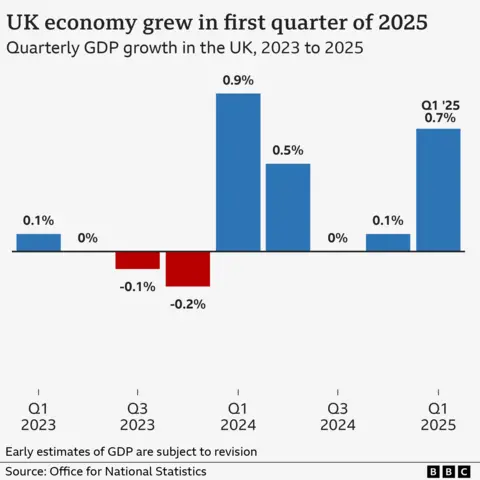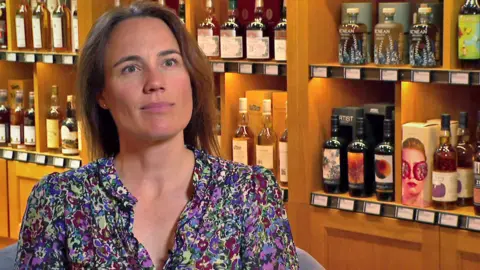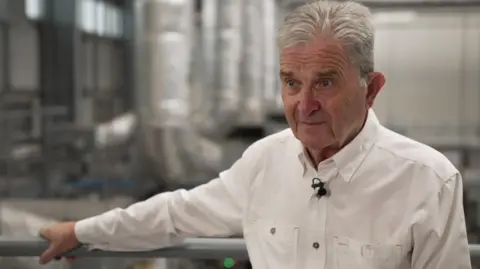Business reporter, BBC News
 Getty Images
Getty ImagesThe UK’s economy grew by more than expected in the first three months of the year, according to the latest official figures.
The economy expanded by 0.7% in the January-to-March period, which was stronger than the 0.6% that analysts had forecast.
The Office for National Statistics (ONS) said growth was largely driven by the UK services sector, although production also “grew significantly”.
The figures mark the period just before the US imposed import tariffs and UK employer taxes increased in April, and analysts warned the strong rate of growth was unlikely to continue.
Chancellor Rachel Reeves said the latest figures showed “the strength and potential of the UK economy”.
“In the first three months of the year, the UK economy has grown faster than the US, Canada, France, Italy and Germany,” she added.
But shadow chancellor Mel Stride pointed out that both the Office for Budget Responsibility and the International Monetary Fund had downgraded the UK’s growth forecast for this year.
He also criticised the rise in employers’ National Insurance payments, which came into effect in April, calling it a “jobs tax”.
“Labour inherited the fastest-growing economy in the G7, but their decisions have put that progress at risk,” he said.
Liberal Democrat Treasury spokesperson Daisy Cooper said the data was “positive news”, but there was “no time for complacency”.
Reform UK deputy leader Richard Tice MP said: “We are yet to see the impact of Rachel Reeves’ April tax rises on growth, it won’t be pretty.”

The economy grew by 0.2% in March, the ONS said, which was also better than the zero growth that had been forecast.
Liz Martins, senior UK economist at HSBC, told the BBC’s Today programme she was feeling “quite cheered” by the figures.
The economy had grown strongly in February, which had been put down partly to companies ramping up output and exports ahead of US tariffs.
But Ms Martins said the latest figures indicated growth had been “driven by the good stuff”.
“Business investment is up nearly 6% on the quarter and the service sector is doing well as well.
“So it’s not just manufacturers selling to the US to get ahead of the tariffs.”
However, Paul Dales at Capital Economics was more sceptical, saying the latest growth “might be as good as it gets for the year”.
He said the strong rise in GDP was “unlikely to be repeated as a lot of it was due to activity being brought forward ahead of US tariffs and the rise in domestic businesses taxes”.
Simon Pittaway, senior economist at the Resolution Foundation, also said the growth rebound was “unlikely to last, with data for April looking far weaker, and huge tariff-shaped clouds hanging over the global economy”.

Annabel Thomas, chief executive of the Nc’nean Whisky Distillery based in Scotland, says she is “reasonably confident” about prospects for the UK.
UK interest rates are expected to fall further this year, “and that really affects the money people have in their pockets,” she said.
The business has a growing customer base in the US, and so decided to take the hit from the trade tariffs themselves.
“We would absorb the tariffs and keep our prices stable in the US,” she said.

John Inglis is the founder of diamond tool manufacturer Exactaform, which employs 100 people and has a factory in the US, and says it is currently very difficult to make decisions over the future of the business.
“We’ve got tariffs. We don’t know where, which way we’re going – 10% off a margin is quite a lot.”
He said they were reluctant to move their production to America as they would be “putting UK people who have been very loyal to us out of work and nobody wants to do that”.
As for the rise in employers’ National Insurance, he said he did not mind “putting in extra… but it’s all niggling away at the profit you need to expand”.
“It’s the way it is at the moment. We’re holding fire [on decisions] because if you make the wrong decision now, everybody’s out of a job.”




